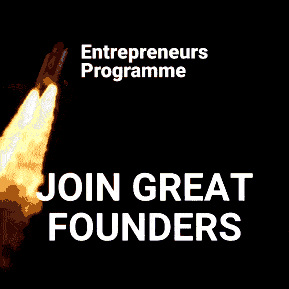An Ikigai will aid you in maintaining your composure as an entrepreneur through the ups and downs of beginning or growing your firm. You can start a business, create a professional path, and make decisions that will lead to a meaningful existence by using Ikigai.
You can strike a balance between your personal and professional lives by completing the four aspects and four themes of Ikigai. The Ikigai serves as a helpful reminder of why you give your all to your business, why you work so hard to make it succeed, and why you strive each day to overcome the obstacles in your path.
What is Ikigai?
Ikigai, a three-thousand-year-old Japanese concept, translates to "a reason for being." It aids in people's clarity on their life's purpose, promoting happiness and fulfilment. Ikigai can be used in the business world, though it was originally and generally applied to finding meaning in your personal life.
What you love, what the world needs, what you are good at, and what you can be paid for are the four components of Ikigai. These same four criteria can be used by businesses to achieve the ideal balance that develops a potent driving force for the growth and momentum of a firm.
Ikigai Business Concept
What are you good at?
You may enjoy doing a lot of things but only be skilled at a few of them. Make sure you are good at what you do if you want to lead a meaningful life and run a well-balanced business. Ikigai deviates from the advice to just "do what you love" at this point. In actuality, pursuing your passions alone won't result in a fulfilling life. You must be skilled in it as well. Working at something you are not good at is not exactly practical, and it does not boost your confidence.
A lack of faith in your knowledge and abilities may hinder you. Consider what your employees are capable of doing from the management’s perspective. Find methods to stretch, develop, and uncover the skills and talents of your employees. They will undoubtedly experience a new degree of satisfaction at work if they can use their skills, both recognized and undiscovered, to their advantage. Allow them the room they need to continue developing and blooming into a potential future.
What Do You Love?
“More than 9 out of 10 employees are willing to trade a percentage of their lifetime earnings for greater meaning at work.”
For an individual, it is about the love for what you do for your job. Whereas for a business, it is what motivates the culture of an organization. Since we spend the majority of our waking hours at work, it is essential to our happiness that we love, or at least enjoy, what we do. Whatever creating a happier workplace means to you, get started on making it happen. Teams may be reorganized, workloads may be reduced, jobs may be more varied, or new partners may be added to spark greater joy in the office.
Some businesses like to implement Myers-Briggs tests for their employees so they may identify their preferred working style and share it with their coworkers. Reduced workplace stress and increased workplace happiness can be attained by having your work style recognized and valued.
On the other side, working a job you don’t love can make you feel empty. It is not good for you or your employees if your business is successful but you do not enjoy operating it. That would not make you eager to start the day and strive for the best for your business.
What Does The World Need?
Asking yourself if your company is providing the world with what it needs will help you determine if you are. Who am I aiding here? How does my work benefit others? Changing the world totally for the better is challenging. These, however, are issues that can be resolved. Consider ‘how are you helping the world in order to come up with solutions to any bad effects you might be having on other people or the environment.
Even while we can not quickly reverse the negative effects, there are strategies to lessen them. It is much better to take a few small steps in the correct direction than none at all. Your main goal should be to offer something that someone or somewhere will want and need. Make sure your market is big enough for you to base your business on. Working on a product or service that the world does not require makes the effort seem pointless and meaningless.
Selling items that you are aware the world does not need is challenging. To understand your customers and their demands, a business may use customer analytics. This gives customers a direction for the values that have already been added to or can be added to their lives.
What Can You Be Paid For?
Even if you can locate a skill that people want, need, and love, if you cover your costs and turn a reasonable profit, it is difficult to be successful. You must fulfil a need or demand in order to earn money. If you discover that your business isn't generating as much revenue as you had intended, consider whether you are providing the market with a need.
Your solution to a problem must be significant enough to persuade customers to use their hard-earned cash. Maybe your marketing strategy has to be adjusted to target a more pertinent demographic or you need to choose a goal to increase company profits. Even though it may be enjoyable, working nonstop for something you are not paid for is not practical as a full-time job. We must support our family while also paying our bills.

You can discover your Ikigai by having these four factors in place. Certain companies have successfully perfected the art of Ikigai and identified a sweet spot that addresses all four factors at once. According to research, people who believe in having a purpose in life are typically happier and highly optimistic. This starts a positive feedback loop that gives people motivation and encouragement to work more and have a greater effect.
The Sweet Spot
The Ikigai Venn diagram consists of more than the four elements mentioned above. The areas where the circles intersect are the connecting themes: passion, mission, vocation, and profession.
Firstly, passion combines what lights your fire and what you are good at. It provides the thrill and joy you need. What interests or activities have others deemed you skilled in and which ones make you excited?
Next, the mission is a combination of what lights your fire and how you are helping the world. When launching a business, a mission is highly necessary and will be asked by most people to understand your business values. This shows a strong sense of duty to others.
Moreover, vocation shows the overlap of how are you helping the world and how can you generate profit. It depicts the market that your company is trying to break into or is already in.
Lastly, the profession is the merge of what are you good at and how can you generate profit. It is your job title and your recognized qualifications. Your line of work is what the world needs and is for which you have received training.
A true Ikigai lies at the centre of this Venn diagram, where all four circles overlap, finding what is called a sweet spot.
Finding Your Ikigai
The reason "Why" is the key to discovering your Ikigai. Every business and every person's career is guided by their "why," or the goal and purpose that motivates them. It ought to make it clearer to you what the business does and why customers should be interested. Why should your employees need to care? Simon Sinek, a well-known author whose book “Starts with Why” motivated millions to identify and consider the why of their organization and purpose at work. He said that if you know why you are doing what you are doing, you can make better decisions for your business, profession, and life.
“If we want to feel an undying passion for our work, if we want to feel we are contributing to something bigger than ourselves, we all need to know our WHY.” - Simon Sinek

Realigning Your Business Purpose
Businesses can more clearly define how their products contribute to a better society by using the Ikigai concept to direct their business purpose. Resonating with your customers through the products and services you provide is important to appeal to them. Connecting with people who share the same values as your business results in them becoming your supporters rather than just customers, which fosters loyalty.
Telling their friends and coworkers about your business and offerings could result in word-of-mouth marketing, which spreads without the need for a costly campaign or advertisement. The Ikigai concept can be used as an easy-to-use yet powerful tool for your business. Your company's "why" can be made clearer, ensuring that it is based on what the world actually needs rather than merely what customers will buy.
Entrepreneurial Ikigai
Consider your personal strengths, flaws, talents, values, and passions before you can evaluate your professional strengths, weaknesses, talents, values, and passions. We can examine the entrepreneur's uniqueness, capabilities, passions, and life experiences in the same manner that we examine the business' strategy, goal, vision, and core competencies.
Being an entrepreneur, it is important to take some time to consider the type of business you are most suited to launch before taking any action. It is okay if you can not immediately identify your Ikigai because many people find it challenging to balance their need for profit with their desire to have a positive social influence. In terms of the Ikigai concept, it asks how you can improve the world as opposed to how you can make money. There is never a perfect answer to the four Ikigai elements and themes.
Ikigai Example
We could break down Ikigai with an example of Conan O’Brien’s talk show. This talk show became his Ikigai on the reason for his love for his job and what keeps him hanging on. From Conan’s perspective, let us see the break out of his Ikigai.
He is good at comedy writing and stage performance. While causing chuckles and laughter of people is something that lights his fire. By being the host of a talk show for Late Night, he is contributing to the world and is giving something people are expecting. He would be able to generate profit by making an original comedy show that is unlike anything else out there.
After identifying the four elements, we are able to get his passion, mission, vocation, and profession. His passion is writing comedic material or skits and collaborating with artists. The mission is to share happy moments and connect with others. Then his vocation is comedy and entertainment while his profession is being a comedy writer and performer.
Evolving Your Ikigai
As we become older, our surroundings and circumstances change, which means that our Ikigai may also evolve or alter. Or, you might not even find out what your Ikigai is until much later in life. Perhaps you will find it when you pick up a new skill or find a passion that will enrich your Ikgai. The same is true for businesses.
The nature and progression of the business change as it moves through its business life cycle, which causes a shift in the Ikigai of the business. Your business's potential may have been limited when you first started it or when you first started discovering your sense of purpose. Your interests may grow as you proceed, which could involve you and your business in more areas.
Conclusion
You may start a business that leverages your skills, pays you reasonably, inspires you, and benefits the world. Not only is it feasible, but it also serves as a sustainable, durable, and wholesome concept for the twenty-first century.
The Ikigai concept is an effective tool for determining your organization's values. It can assist you in determining your areas of weakness and how to strengthen them. The Ikigai concept enables us to keep on course and never lose focus on "the reason of being," whether as an individual or as a startup.
Reference






